The rate of early intervention is 13.6%
The report below from the Ho Chi Minh City Department of Education and Training shows that in the 2023-2024 school year, Ho Chi Minh City has a total of 3,312 specialized students (326 children of preschool age).
Among the specialized students, if divided by disability type, those with motor disabilities have the fewest students - only 46 students; those with intellectual disabilities have the largest number with 1,820 students (accounting for 54.95%).
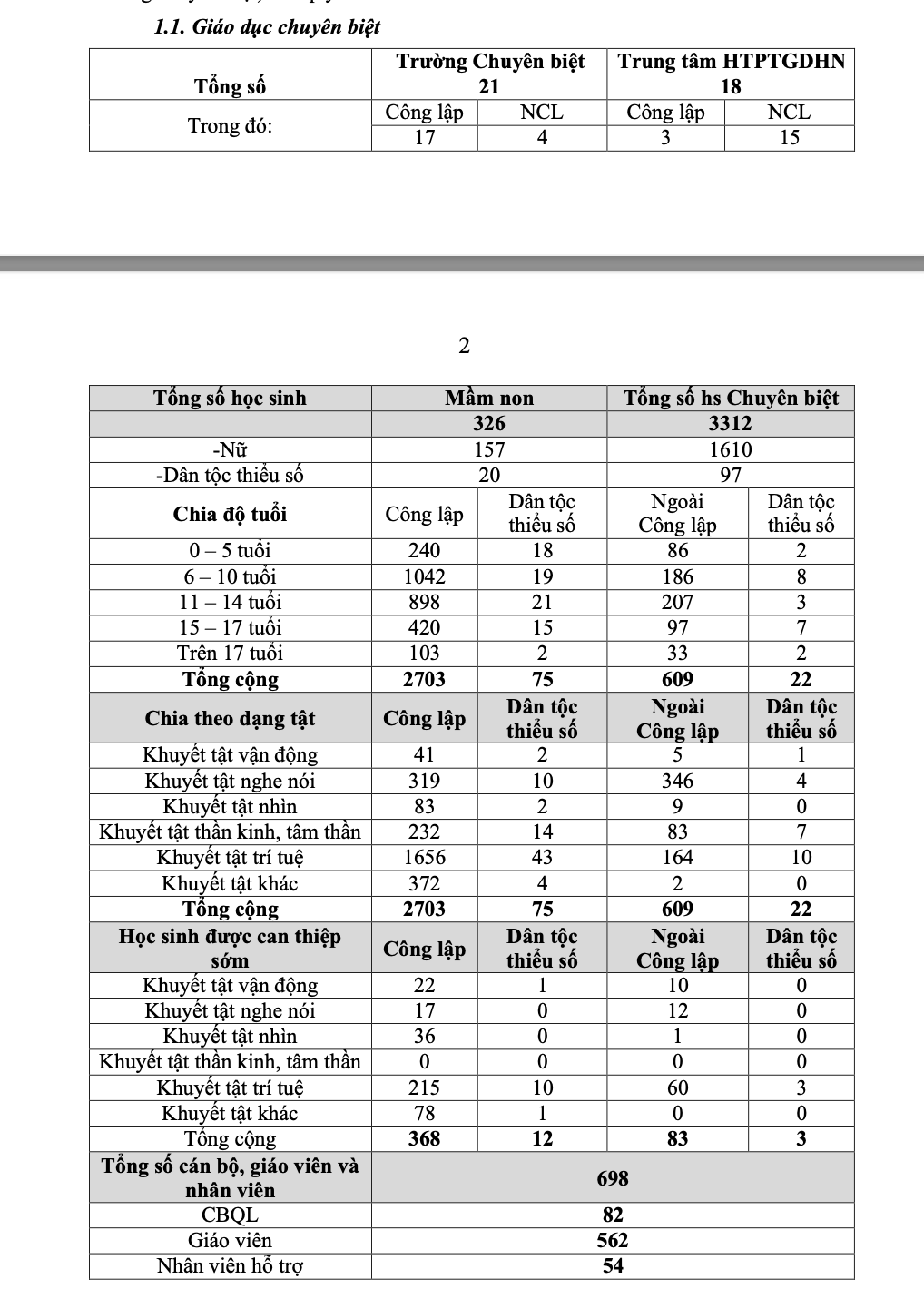
Statistics table on specialized education in Ho Chi Minh City for the 2023-2024 school year
PHOTO: REPORT FROM THE DEPARTMENT OF EDUCATION AND TRAINING OF HO CHI MINH CITY
Also from the above report of the Department of Education and Training of Ho Chi Minh City, it shows that a remarkable number is that only 451 students out of a total of 3,312 specialized students received early intervention (a rate of 13.6%).
Why is early intervention necessary for children?
According to experts, the period from 0 to 3 years old is the golden period for intervention for children in need of special education. From 3 to 6 years old is late, but better late than never. Parents should not wait until their children are in their teens to take them for intervention.
In Ho Chi Minh City, the SENBOX special education center, District 7, is a place for full-time 1-1 or 2-1 individual intervention from morning to afternoon, for children with intellectual disabilities, developmental delays, autism spectrum disorder (ASD), attention deficit disorder (ADD), attention deficit hyperactivity disorder (ADHD), and challenging behavior.
Mr. Doyle Mueller, a teacher from Germany with over 25 years of experience working with children with learning disabilities around the world, including Germany, England, Australia, New Zealand and Vietnam, is currently the director and founder of the SENBOX teaching system and the SENBOX special education center. He once shared with Thanh Nien Newspaper reporters his concerns about some issues of some parents whose children need special education. Typically, parents do not accept that their children need special education. There are still thoughts like taking their children to this doctor, that hospital to be treated with medicine, acupuncture... then their children will recover. Or there are also parents who take their children to school, to a special education center but do not know or do not dare to ask what the teachers have done for their children, what exercises they have given their children to practice...
Mr. Mueller wants to change the perception of all parents. According to Mr. Mueller, parents need to accept that their children need special education, and must do it as soon as possible, so as not to miss the golden period of the child. In particular, parents who send their children for intervention should not leave their children completely to the school and the child care facility. Parents should be able to observe, know, and ask "why" about the ways teachers intervene with their children.
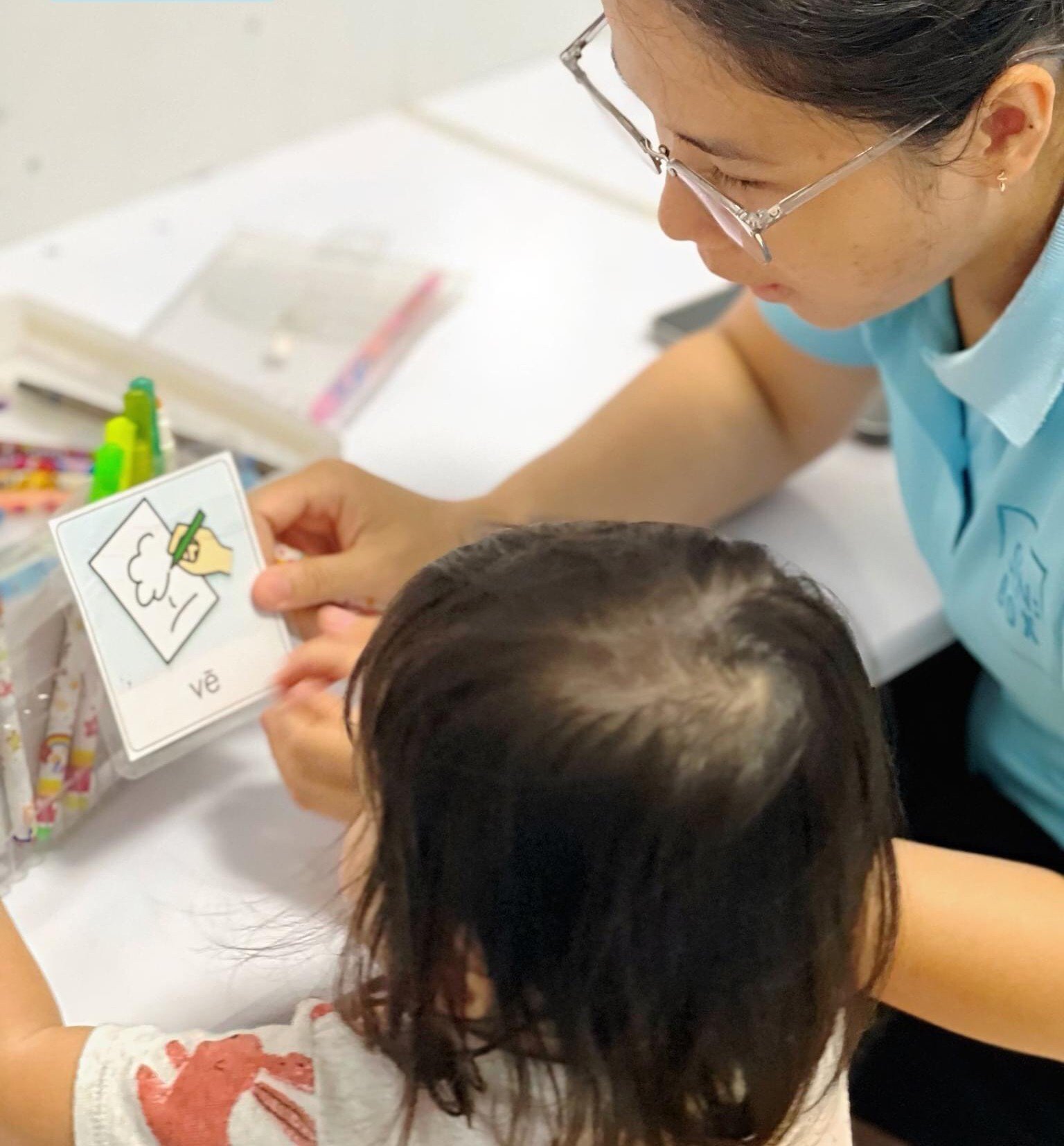
Children receive early intervention at SENBOX special education center
Center under the Department of Education and Training of Ho Chi Minh City helps diagnose - evaluate and advise
In Ho Chi Minh City, the Center for Supporting the Development of Inclusive Education for People with Disabilities (a public unit, under the Department of Education and Training of Ho Chi Minh City, address 108 Ly Chinh Thang, District 3) is one of the units performing the task of diagnosis - assessment and consultation for children with disabilities and children with special educational needs.
In a report on the work of diagnosis - assessment and consultation at this center during the summary of special education for the 2023-2024 school year and the deployment of tasks for the 2024-2025 school year at the Department of Education and Training on September 25, the leader of this center said that children were brought to register for diagnosis and assessment for many different purposes. Such as helping parents understand the difficult situation of their children and receive advice on early educational intervention and therapy support for children; as a basis for organizations and educational institutions to consider policies and regimes for children with disabilities; guiding schools in implementing the subject exemption/reduction regime, adjusting and selecting program content, teaching and learning methods, and assessment and assessment methods appropriate to the level of ability and needs of children.
The center accepts children and students aged 0 to 18 and is divided into age groups: children under 3 years old, children from 3 to under 6 years old, primary school students, secondary school students and high school students.
Personnel participating in diagnosis - assessment and consultation at the Center include special education managers, special educators, psychomotor therapists, clinical psychotherapists, systemic psychotherapists, and educational psychologists (school psychologists).
The center has appropriate assessment tools for children, depending on the age, level of development, psychological characteristics, difficulties and needs of each child (developmental checklist for children under 6 years old, WISC-IV intellectual capacity scale, Ycat-2 assessment set, ADHD assessment scale, KABC intelligence test set, etc.).
According to the center's leaders, the process when a child comes for assessment includes the following steps: Receiving and registering children for assessment; assigning and scheduling assessment of children; assessing children; returning assessment results; providing advice and support for children/students after assessment.
When giving the assessment results, experts always make recommendations to help parents and teachers have appropriate and timely support for children. That is, advising on admitting children to intervention - therapy at the center (with early intervention and therapy forms appropriate to the needs and abilities of the child).
Or consulting, orienting and supporting schools in implementing policies for children and students; consulting and supporting teachers on individual education programs and other related issues in teaching and education; consulting parents on the status and problems of children when living at home and when participating in school. In addition, the center also consults parents on common problems of children and orients and supports children's integration at home and where they live...
Source: https://thanhnien.vn/3312-hoc-sinh-chuyen-biet-chi-451-em-duoc-can-thiep-som-18524092619521283.htm


![[Photo] General Secretary To Lam receives Russian Ambassador to Vietnam](https://vstatic.vietnam.vn/vietnam/resource/IMAGE/2025/4/2/b486192404d54058b15165174ea36c4e)
![[Photo] Comrade Khamtay Siphandone - a leader who contributed to fostering Vietnam-Laos relations](https://vstatic.vietnam.vn/vietnam/resource/IMAGE/2025/4/3/3d83ed2d26e2426fabd41862661dfff2)
![[Photo] Prime Minister Pham Minh Chinh receives Deputy Prime Minister of the Republic of Belarus Anatoly Sivak](https://vstatic.vietnam.vn/vietnam/resource/IMAGE/2025/4/2/79cdb685820a45868602e2fa576977a0)

![[Photo] Prime Minister Pham Minh Chinh receives CEO of Standard Chartered Group](https://vstatic.vietnam.vn/vietnam/resource/IMAGE/2025/4/2/125507ba412d4ebfb091fa7ddb936b3b)


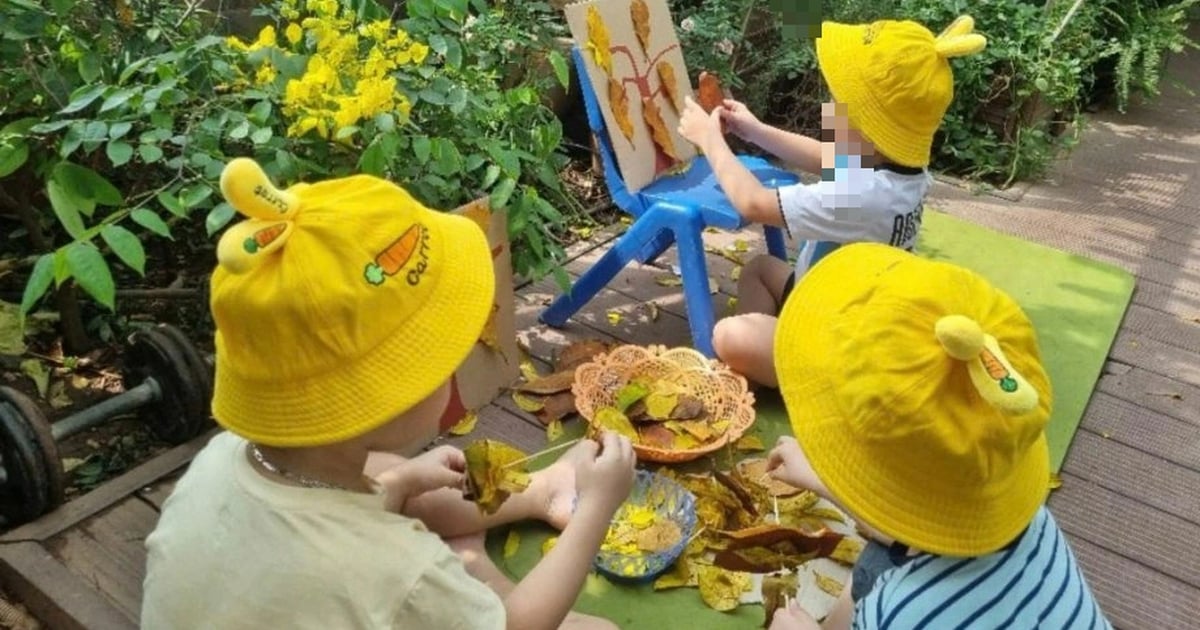
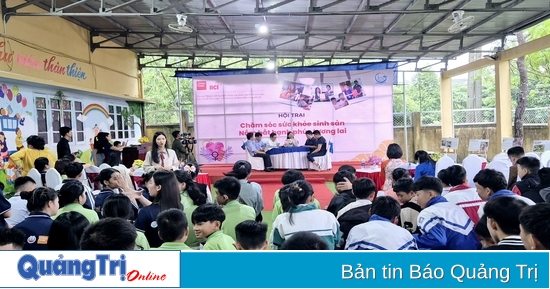

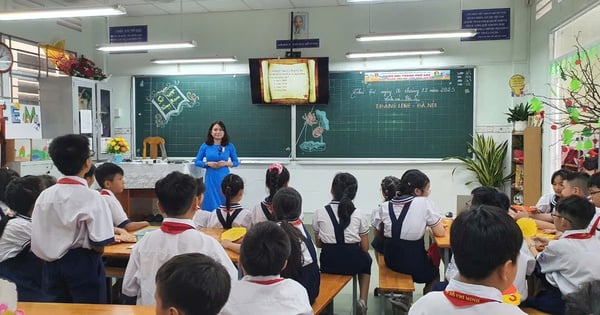






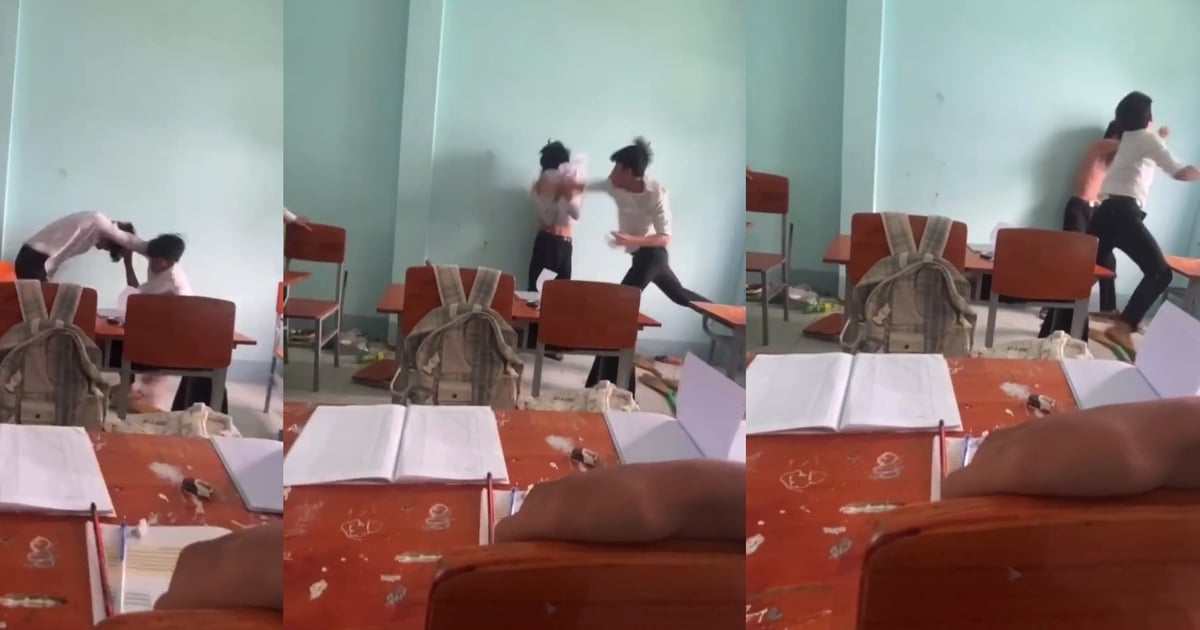
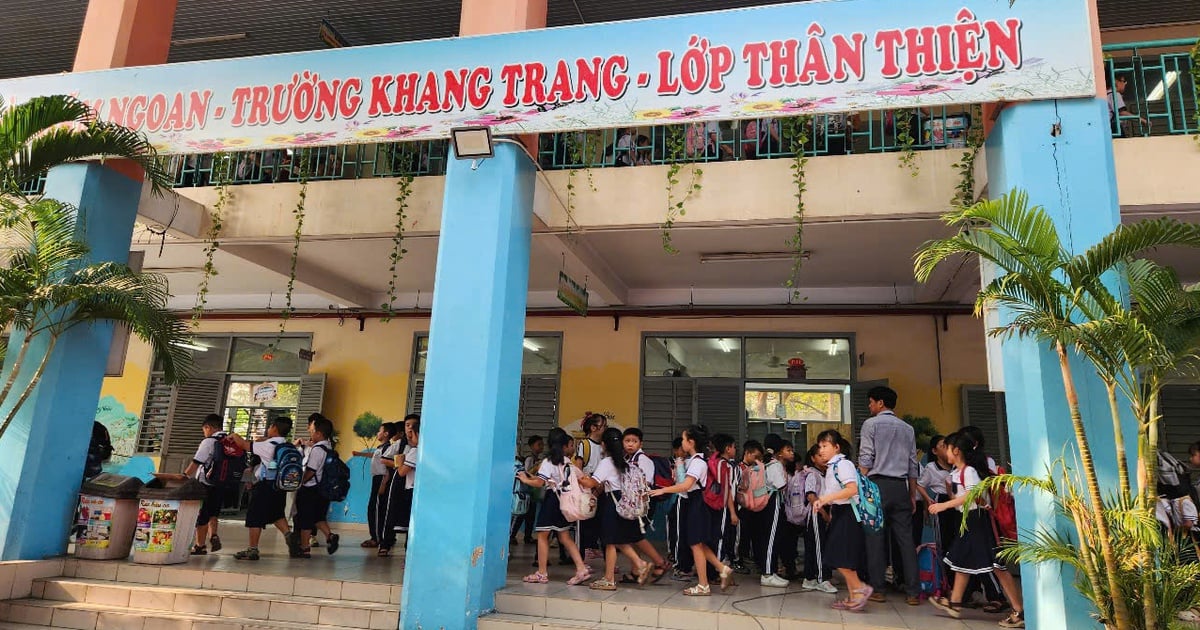











































































Comment (0)